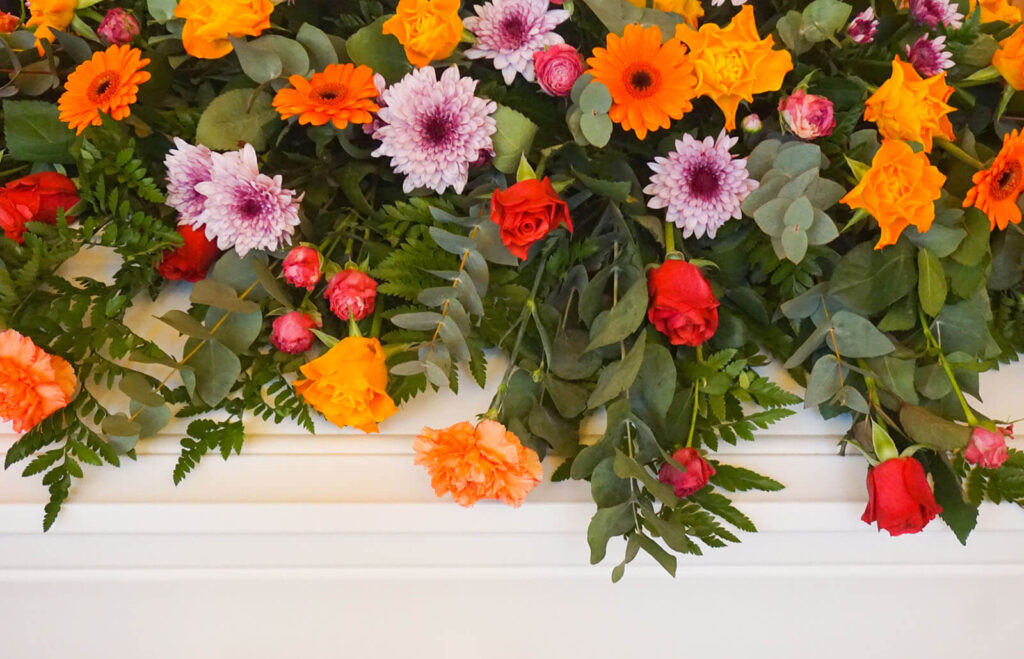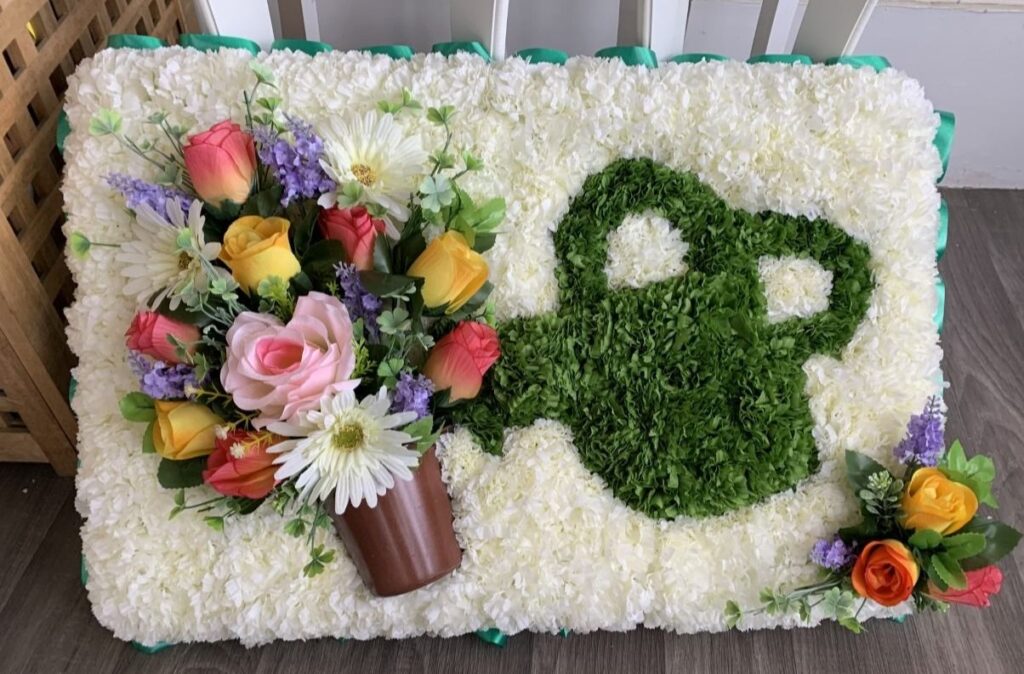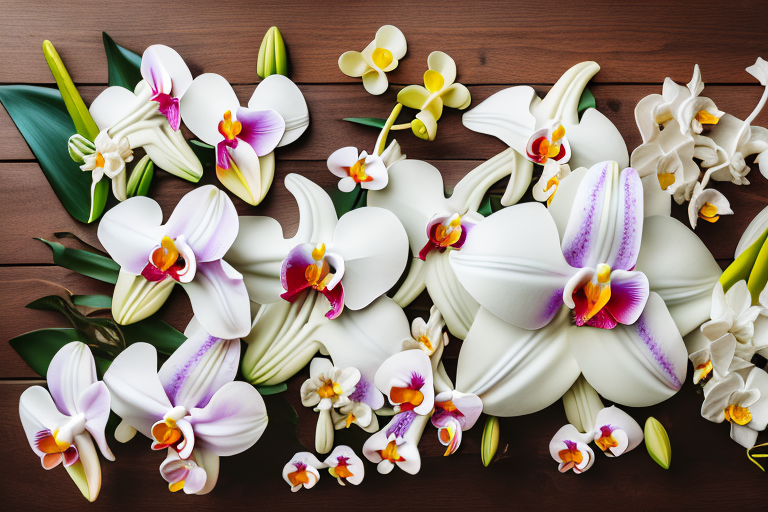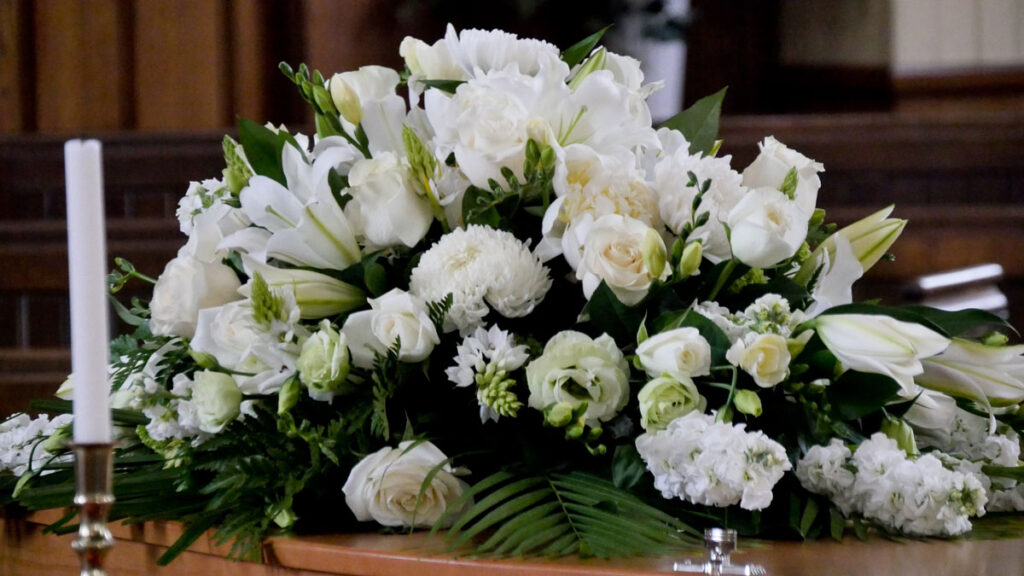When saying goodbye to a loved one, one of the most meaningful ways to honour their memory is through the choice of funeral flowers. While these blooms may seem like a small detail in the midst of grief, they hold great significance in paying tribute to a life well-lived. Understanding the symbolism, cultural traditions, and personal relationships involved can help guide your selection process. In this article, we will explore the various aspects to consider when choosing the right funeral flowers to honour a life.
Understanding the Symbolism of Funeral Flowers
Flowers have long been used to convey messages and express emotions. When it comes to funeral flowers, their symbolism takes on a deeply personal and profound meaning. They serve as a silent language that speaks volumes in the midst of grief.
In Victorian times, a complex language of flowers emerged, allowing individuals to convey specific sentiments through their floral arrangements. Each blossom carried its own meaning, creating a unique narrative for the deceased. For example, roses symbolize love and respect, while lilies represent purity and rebirth.
By incorporating these symbolic flowers into funeral arrangements, you can create a deeply meaningful tribute that aligns with the personality and values of your loved one.

But what other flowers hold special meanings in the language of funeral flowers? Carnations, for instance, symbolize admiration and remembrance, making them a popular choice for honoring the memory of a loved one. Orchids, on the other hand, represent eternal love and beauty, offering a fitting tribute to someone who brought joy and grace into the lives of others. Click here for the ultimate guide to flower delivery on the Central Coast.
The Language of Flowers in Mourning
The language of flowers in mourning extends beyond individual blossoms. The way these flowers are arranged can also convey specific messages. For example, a wreath symbolizes eternal life and is often placed on the casket or displayed at the funeral service. A heart-shaped arrangement, on the other hand, represents love and can be a touching tribute to a spouse or partner.
Furthermore, the color of the flowers can add another layer of symbolism. White flowers, such as white roses or white lilies, are often associated with purity and innocence, while red flowers, like red roses, symbolize love and passion. Yellow flowers, such as yellow tulips or yellow daisies, can represent friendship and bring a sense of warmth and comfort to the grieving family.
Understanding the language of flowers in mourning allows you to create a funeral arrangement that not only honors the memory of your loved one but also conveys your deepest emotions and sentiments.
Cultural Significance of Funeral Flowers
Funeral flower traditions vary across cultures and religions. For instance, in some Asian cultures, chrysanthemums are associated with death and are therefore reserved for funerals. Their vibrant colors and delicate petals serve as a symbol of honor and respect for the deceased.
In contrast, white lilies are commonly used in Christian funeral services to symbolize purity and the resurrection of the soul. These elegant flowers are often arranged in a bouquet or displayed in a vase, creating a serene and peaceful atmosphere during the service.
It is important to consider the cultural background of the deceased and their family when selecting funeral flowers to ensure you respect and honor their traditions. By doing so, you not only pay tribute to your loved one but also show your support and understanding during their time of grief.
Funeral flowers hold a significant place in the mourning process. They provide comfort, beauty, and a way to express emotions when words fail. Whether you choose roses, lilies, carnations, or any other flower, the symbolism behind these floral tributes serves as a powerful reminder of the love and memories shared with the departed.
Choosing the Right Flowers Based on Relationship
When selecting funeral flowers, the relationship you had with the deceased plays a significant role. Different relationships warrant different types of tributes.
Funeral flowers are a beautiful way to pay tribute to a loved one who has passed away. They serve as a visual representation of the emotions and memories associated with the person. Each relationship holds a unique significance, and the choice of flowers should reflect that.
Flowers for a Spouse or Partner
If you are choosing funeral flowers to honor your spouse or partner, it is important to select blooms that reflect the deep love and connection you shared. Roses, particularly red or pink ones, are a classic choice that represents love and devotion. Their velvety petals and enchanting fragrance evoke a sense of romance and everlasting love. Consider incorporating their favorite flowers or colors to make the tribute more personal. Perhaps they had a fondness for lilies, known for their elegance and purity, or tulips, symbolizing perfect love.
Flowers for a Parent or Grandparent
When saying goodbye to a parent or grandparent, it is appropriate to select funeral flowers that reflect the nurturing and protective role they played in your life. Carnations, with their timeless beauty and sweet fragrance, are often chosen to represent a mother’s love. These delicate flowers symbolize affection and gratitude, making them a meaningful choice. White or cream-colored flowers are also commonly used to symbolize purity and innocence, reflecting the pure love and guidance received from a parent or grandparent.
Flowers for a Friend or Colleague
When honoring a friend or colleague, choose funeral flowers that reflect the joy and camaraderie you shared. Sunflowers, with their vibrant yellow petals, symbolize loyalty and friendship. These cheerful flowers bring warmth and positivity to any arrangement, reminding everyone of the happy memories shared with the departed. Gerbera daisies, with their bold and vibrant colors, can also be a fitting choice to commemorate a life filled with laughter and joy. Their cheerful presence brings comfort and solace during difficult times.
Remember, the choice of funeral flowers is a personal one, and it should reflect the unique relationship you had with the deceased. Whether it’s roses for a spouse, carnations for a parent, or sunflowers for a friend, each flower holds its own symbolism and meaning. By selecting the right flowers, you can create a heartfelt tribute that honors the memory of your loved one and brings comfort to those who are grieving.

The Role of Colour in Funeral Flowers
Color is another important element to consider when selecting funeral flowers. Different hues evoke different emotions and carry various meanings.
Funeral flowers have long been used as a way to express emotions and pay tribute to the deceased. The choice of color in these floral arrangements can add depth and symbolism to the overall message being conveyed.
Traditional Colors and Their Meanings
White is the most commonly associated color with funeral flowers. It represents purity and innocence and is often used in sympathy arrangements. The delicate white blossoms bring a sense of peace and tranquility to the somber atmosphere.
Red symbolizes love and respect, making it a popular choice for expressing deep affection towards the departed. The vibrant red blooms serve as a reminder of the love that will forever remain in the hearts of those left behind.
Yellow signifies friendship and can be a comforting choice for those who want to celebrate the joyful moments shared with the deceased. The bright yellow flowers bring a ray of sunshine amidst the sorrow, reminding everyone of the cherished memories.
Pink carries an essence of grace and admiration. It is a gentle color that can evoke feelings of tenderness and affection. Pink funeral flowers can be a beautiful way to honor the kindness and compassion that the departed embodied.
Purple is associated with dignity and reverence. It is a color often chosen to pay homage to someone who held a position of respect and authority. The regal purple blooms serve as a reminder of the impact the deceased had on the lives of others.
Choosing Colors to Reflect Personality
When selecting funeral flowers, it is important to consider the personality and preferences of the deceased. Did they have a favorite color that brought them joy? Did they have a preference for bold and vibrant tones or subtle and muted shades?
By personalizing the color palette of the funeral flowers, you can create a tribute that truly captures the essence of the departed. It becomes a reflection of their unique personality and the way they lived their life.
For someone who had a vibrant and outgoing personality, bold and striking colors like fiery oranges or deep purples may be a fitting choice. These colors can represent their zest for life and their ability to leave a lasting impression on those around them.
On the other hand, for someone who had a more gentle and serene disposition, soft pastel colors like pale pinks or light blues can convey a sense of tranquility and peace. These colors can reflect their calm and nurturing nature.
Ultimately, the choice of color in funeral flowers is a deeply personal one. It is a way to honor and remember the unique qualities of the departed. Whether you choose traditional colors with well-established meanings or opt for a personalized color palette, the flowers will serve as a heartfelt tribute to a life well-lived.

Arrangements and Displays: Making a Personal Tribute
When it comes to funeral flower arrangements, the options are limitless. From traditional standing sprays to delicate floral wreaths, each arrangement can be tailored to reflect the unique qualities and passions of your loved one.
Types of Funeral Flower Arrangements
Consider the individual’s personality and interests when choosing the style of floral arrangement. If they had a love for gardening, a basket overflowing with their favorite blooms can be a fitting tribute. For a more formal setting, a classic wreath or casket spray adorned with their favorite flowers can create a sense of elegance and beauty.
Incorporating Personal Touches into Flower Displays
To make funeral flower displays even more personal, consider incorporating symbolic objects or items that hold special meaning. For example, you could add seashells to represent cherished memories of beach vacations or small figurines that represent hobbies or passions.
By infusing personal touches into the floral displays, you create a tribute that is truly representative of the life being celebrated.
Practical Considerations When Choosing Funeral Flowers
While the choice of funeral flowers is deeply rooted in symbolism and personalization, there are also practical factors to consider.
Seasonal Availability and Sustainability
When selecting funeral flowers, it is important to consider the time of year. Some flowers may be more readily available, and others may be more expensive or imported. Choosing locally sourced or seasonal blooms not only helps support local growers but also ensures the freshness and sustainability of the arrangements.
Budgeting for Funeral Flowers
Funeral expenses can add up quickly, and flowers are just one aspect of the overall budget. It is essential to establish a budget and stick to it when selecting funeral flowers. By working closely with a florist, you can find beautiful arrangements that fit within your budget and still create a meaningful tribute.
Choosing the right funeral flowers is a delicate and deeply personal process. By understanding the symbolism, considering cultural traditions, and honoring the relationship you had, you can ensure that your floral tribute truly represents and celebrates the life of your loved one. Whether it’s through the choice of specific blooms, colors, or unique arrangements, your gesture will provide comfort and solace to those who gather to say their final goodbyes.

